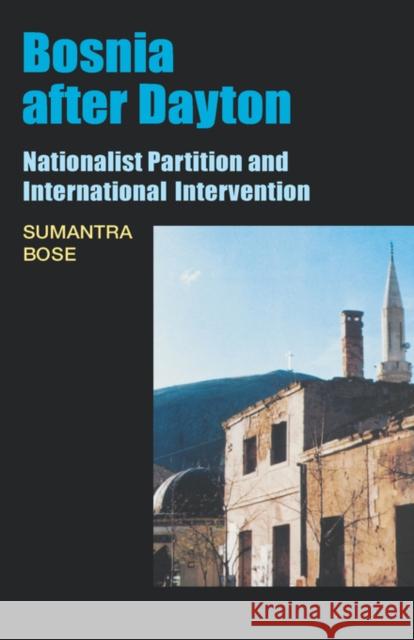Bosnia After Dayton: Nationalist Partition and International Intervention » książka
topmenu
Bosnia After Dayton: Nationalist Partition and International Intervention
ISBN-13: 9780195158489 / Angielski / Twarda / 2002 / 352 str.
Since 1996, Bosnia & Herzegovina has been the site of a remarkable project of political engineering. A complex consortium of international agencies backed by Western governments have been transforming a devastated, ethnically partitioned, post-war territory into a multiethnic, democratic and economically viable state. Despite an enormous investment of personnel and resources, six years later BiHs post-Yugoslav future remains tenuous. Did the engineering project work?
In an era when countries from Somalia to Afghanistan are confronting questions of state legitimacy amidst international intervention, Bosnia after Dayton is a fascinating study in the dilemmas of the post-Cold War international order. How effective are international peace-building interventions in fractured states? Is the preservation of a multinational state desirable--or even possible--where the majority of citizens only reluctantly acknowledge its legitimacy? Drawing on the authors extensive field experience, this book takes a hard look at the issues that Bosnia continues to face. Juxtaposing big-picture analysis with an intimate knowledge of the region, Bose situates the international community's extensive program of state-building and democratization in BiH since the Dayton Peace Agreement in he context of Bosnia's and the former Yugoslavia's complex historical legacy of coexistence and conflict. Bose tells the gripping story of the divided city of Mostar, and analyzes the institutional structure and process of Dayton Bosnia. He dissects the making of the Dayton peace accords through American-led coercive diplomacy, and provides a constructive critique of international peace-building. A fascinating study of democratization in a divided society, this book promises to be a landmark in the literatures on former Yugoslavia, and international intervention.










